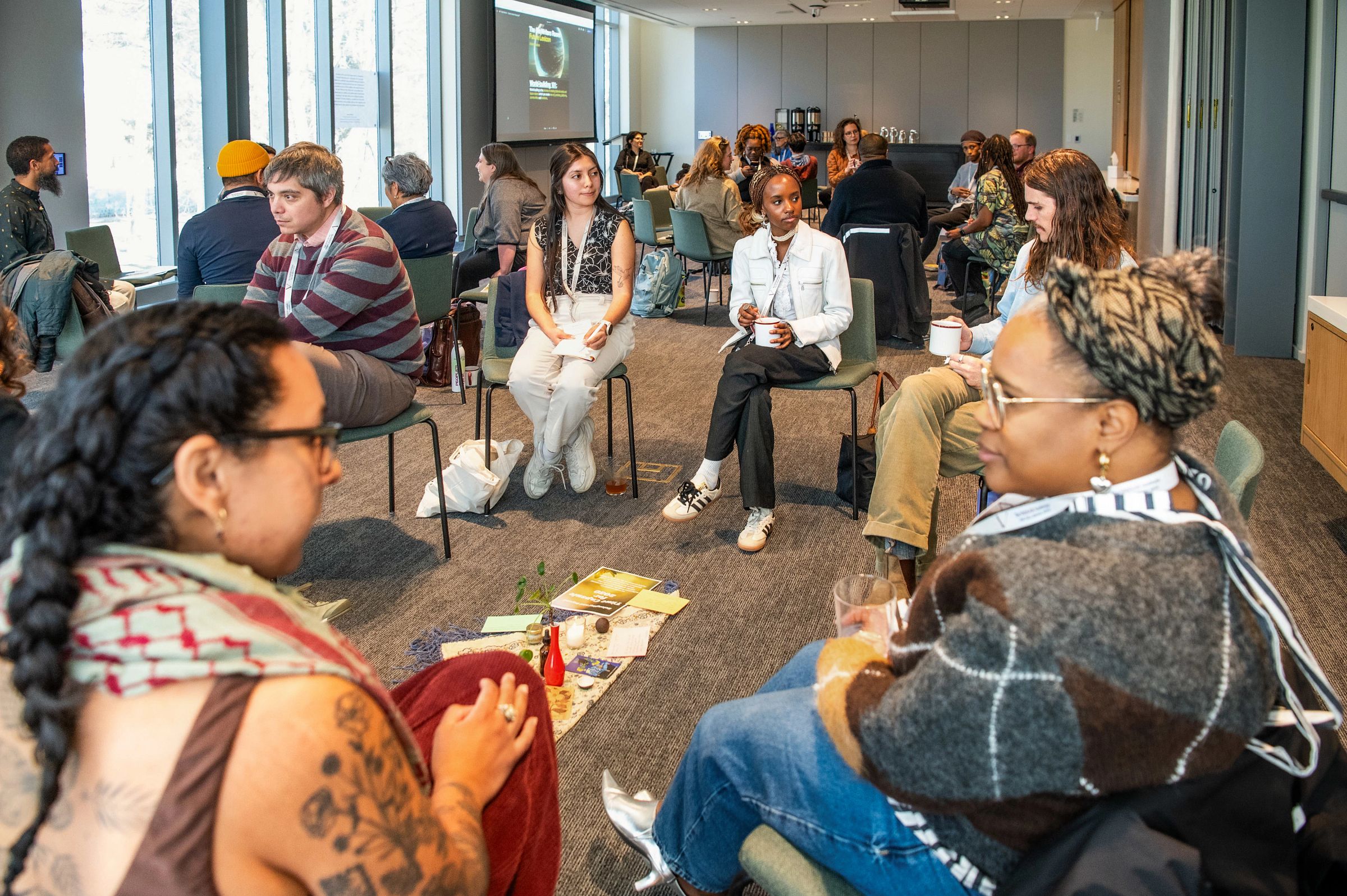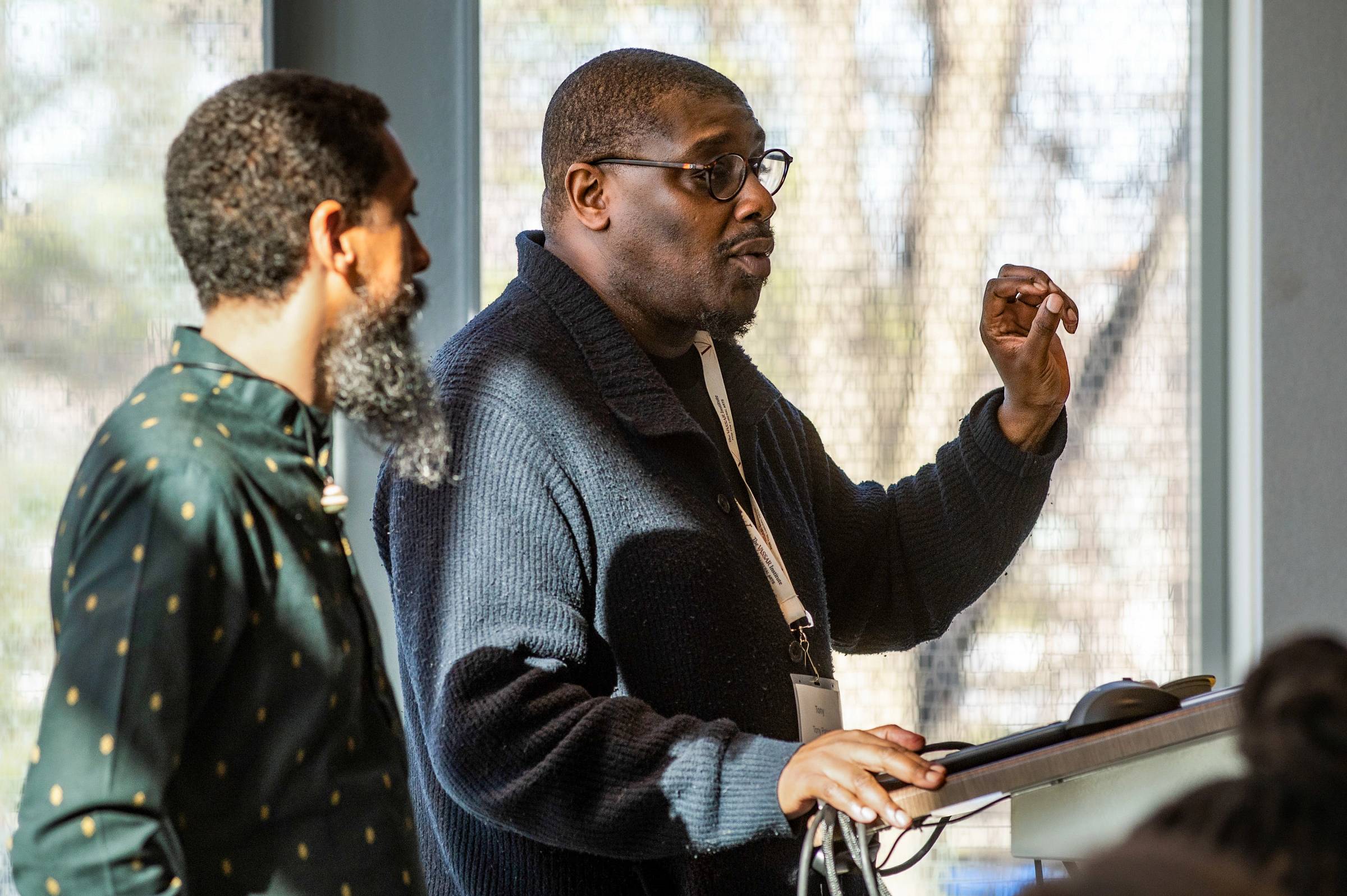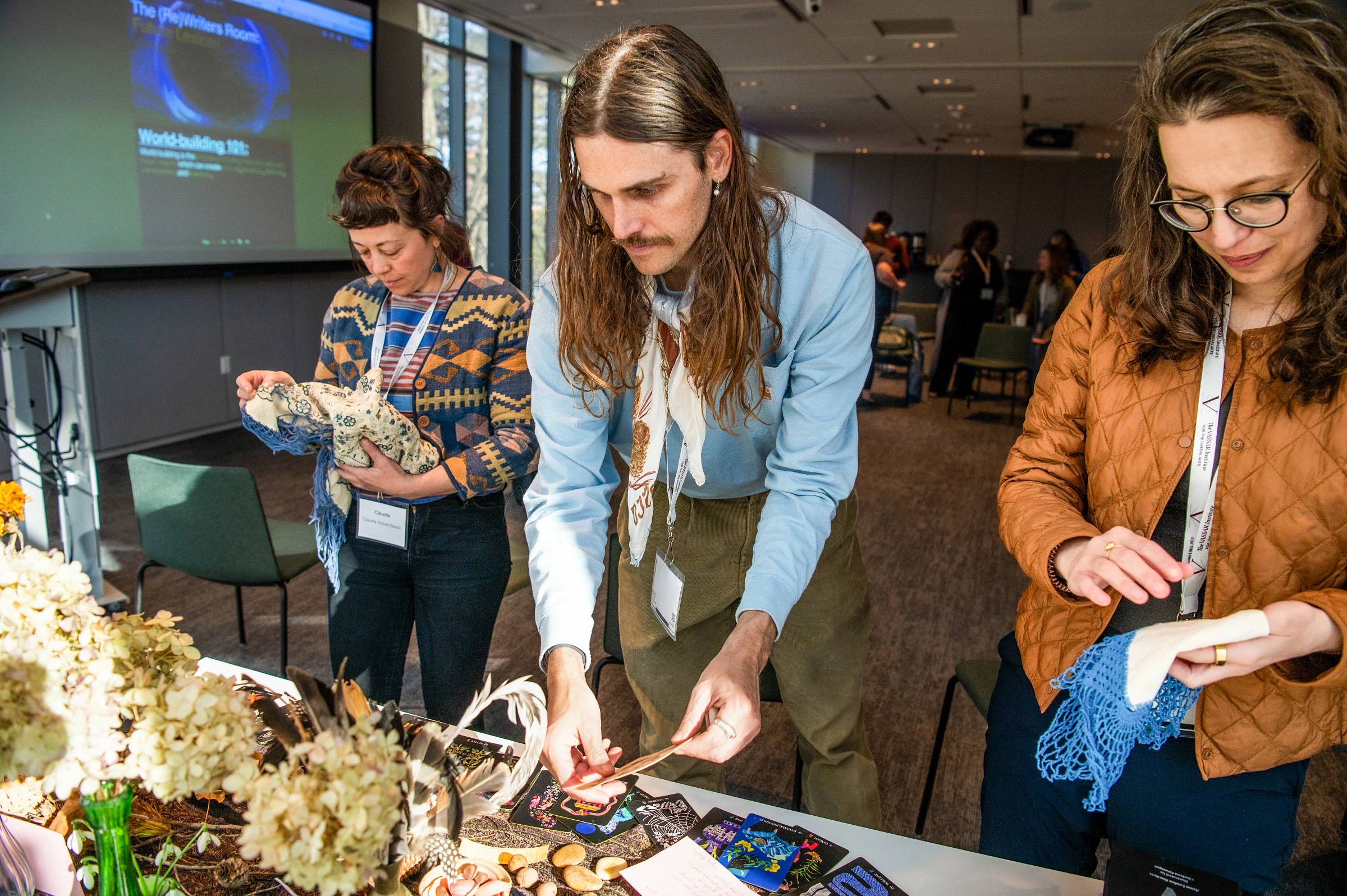Vassar Institute Signature Program Explores Ways Education Can Better Serve Students and the Greater Community
Grounded in personal experience and collective imagination, and drawing on resources that ranged from ancestral intelligence to AI, students, faculty, staff, and administrators from nearly a dozen institutions gathered to explore questions about the future of belonging and mattering in higher education.
At Belonging and Beyond: Using Future Histories to Reimagine Teaching and Learning, a three-day Signature Program at The Vassar Institute for the Liberal Arts, held March 27–29, 2025, participants explored what higher education should look like in the coming decades to better serve students and the greater community.

Conveners were: Candice M. Lowe Swift, Associate Professor of Anthropology, Africana Studies, and International Studies; Eréndira Rueda, Associate Professor of Sociology and Director of Latin American and Latinx Studies; Alison Cook-Sather, Ph.D., Mary Katharine Woodworth Professor of Education at Bryn Mawr College and Director of the Teaching and Learning Institute at Bryn Mawr and Haverford Colleges; and Caleb Elfenbein, Professor of History and Religious Studies at Grinnell College and Associate Dean for Faculty Development and Diversity, Equity, and Inclusion, formally Director of the Center for the Humanities.
Lowe Swift described the event as “an opportunity for educators and students to use ‘future imagining’ methodologies to generate radically inclusive and exciting teaching and learning spaces in higher education.” She said a key goal of the gathering was to enable participants “to generate ideas from their individual experiences that might help unlock our collective imagination and strengthen the relationship between institutions of higher education and the communities in which these institutions are embedded.”
The keynote speakers for the event were Nicole Mirra, Associate Professor of Urban Teacher Education Learning and Teaching at Rutgers University, and Antero Garcia, an Associate Professor in the Graduate School of Education at Stanford University and Vice President of the National Council of Teachers of English. They began their talk by asking participants two questions: What social, civic, or political challenges are students facing in the world today? What knowledge, skills, and dispositions do students need to address these challenges?

Mirra and Garcia highlighted the ways that teaching is central to building a future of collective thriving. They cautioned against fighting for a status quo in education that hasn’t been serving students. Rather than working to replicate an ineffective and broken system, they urged workshop participants to consider how they might work alongside students to practice the future world they want and center student voices in those efforts. “When young people feel like education is in favor of something they care about, they will want to engage,” Mirra noted. As Garcia noted, “Speculative visions doesn’t mean imagining 100 years in the future, but making changes in the here and now and practicing the future we want to live in.” Mirra and Antero ended their talk by reminding those present that “teaching is the praxis of building new worlds of collective thriving.”
Other facilitators and presenters at the conference included independent filmmaker, Jackson Kroopf ’08, who recorded stories, projects, and goals for the 2050 time capsule from the workshop; Claudia Abbot-Barish, who facilitated the ceremonial aspects of the gathering; and NYU Professor, Tony Patrick and co-founder of Hidden Level Games, Errol King, who gave lightening talks about how to make the most of digital technologies as we generate visions for higher education futures.
Participants remarked on how the circle and sharing stories allowed them to enjoy being open and vulnerable among a new group of people. One participant commented that the workshop “embraced uncertainty in a productive way” and another noted that they “enjoyed what felt like collective data analysis.”
The workshop culminated in several tangible project ideas and future-oriented stories. One project idea was a partnership where Bryn Mawr faculty member David Sorge, along with students, was developing a new course in collaboration with a library in Philadelphia based on the concept of a "libraversity" that emerged during the January AALAC workshop and was developed further in the Institute program.
The idea for a “libraversity” is centered on the notion that libraries in the future will become a central public resource and cornerstone of higher education. In a speculative future, we can imagine that the convergence of public libraries, continuing education, and universities has reshaped both learning and the role of the library in the broader community. The notion of a Public Libraversity Network posits a radical redefinition of accessibility and knowledge-sharing. In addition to the projects that participants might begin implementing at their institutions today, some participants focused on developing stories and scenarios that were written from or for the year 2050.
Following the event, Professor Lowe Swift said she had been moved by the “connective tissue” that had enabled the participants to “slow down and imagine where we are and where we should be going.”

Professor Rueda said she was glad that “the workshops had acted as a place where students, as well as educators, felt empowered to imagine what the future of education might look like,” and added that the “keynote speech provided us with some concrete steps we can take to do the work of dreaming and thinking beyond what we have right now.”
Professor Rueda also noted that Omprakash—a non-profit that supports education nationally and globally—is allowing us to use its EdGE platform to host a website that was created to enable participants to stay in touch, share their work, and continue these conversations.
In addition to Bryn Mawr, Grinnell, Haverford, Rutgers, Stanford, and Vassar, other institutions represented at the workshop were: Central European University, Dutchess Community College, New York University, SUNY New Paltz, the University of Michigan, the University of Laverne (CA), and the University of Southern California.